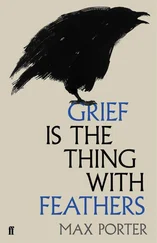“Now you will be my mama, too,” little Pickie told her. She tried to imagine mothering this strange child, who curdled all her maternal instincts. He was listening at the door when Maci went to Mrs. Woodhull, to ask for the hand of her son in marriage. Maci wanted so badly to agree with her employer, when she argued against the idea of Gob and Maci’s binding themselves in conventional union. “Did you know that the Colonel and I are divorced?” she asked Maci. “Just after we were married, we obtained the divorce. As a protest, my star, against Sunday-school mentality. And didn’t you just review a novel called Married in Haste?”
I’ll be with you , her hand promised, I’ll give you away. Maci went down the aisle alone, a bride without need of her father. She had not invited him or her aunt to the wedding, though she felt compelled to write a brief message to Aunt Amy, which she actually mailed to the lady: Aunt, it is indeed a terrible thing not to marry. Maci had wished, anyhow, for a wedding so private that there’d be no one there but her and Gob and some unifying principle. They would join their hands and cleave to each other. They did join hands at the behest of Mr. Beecher’s subordinate, but when they did it brought her no mystical feelings of union. As she held his hands she wondered how she could possibly be marrying someone who dismissed the Vindication as “chatty.”
It was the least private function she’d ever attended, crowded with guests, all Mrs. Woodhull’s, people who came out to show their support of her. Her friends had flocked back to her since January — it turned out that no one could stay away from her for long, no matter how the scarecrows of so-called morality shook their pumpkin heads. But they had not really come for the wedding. They hoped for a speech that would preach brilliant, exciting reform at the same time it wished her son a happy future with his bride. There wasn’t a speech, but Mrs. Woodhull threw a brilliant party, paid for with her son’s money. Mrs. Woodhull was getting poor.
“You must adore the first night,” said Canning Woodhull, one of many people who accosted Maci with advice. “It will be the very best of your life. Everything that follows will be misery, my dear.”
Colonel Blood said, “Do not try to pin his heart to the wall of your bedchamber. It will only bleed, you know.”
Tennie scolded her. “You broke your promise, didn’t you?” They’d had an anti-marriage ceremony, almost two years before. Maci had stood with Tennie in the Turkish corner, dressed in white, and shared a golden cup of wine. “Marriage is the grave of love,” they had intoned together. “I will never enter the grave of love.”
Maci wanted to say, “You’re right!” And she wanted to take Tennie’s hand and flee with her to Paris or Berlin, places Maci remembered from her childhood tour, where they could lead unmarried lives of complicated pleasure. But some other Maci was in charge of her limbs, in that moment, and she could not flee. Still another Maci was trying to push her heart out of her chest, towards Gob where he stood talking with Dr. Fie underneath a mural depicting the loves of Venus: Adonis, Ares, and Anchises. From across the room her new husband looked very small. She wanted to gather him up in her hand.
Maci refused to live in his house, with his engine. They took rooms down at the Fifth Avenue Hotel, where their windows looked out on the trees of Madison Square Park. They had a parlor, with a marble fireplace big enough for little Pickie to stand up in, and red curtains that Maci could close when she did not wish to see the telegraph wires, when she thought they were making a noise like many conversations. Little Pickie remained at the house, under the care of Dr. Fie, but he was a frequent visitor at the hotel. Maci and Gob each had a study, hers filled with a big desk upon which she could lay out proofs, and his stuffed with moldering books. They were on the fourth floor, reached by means of a mechanical elevator, a thing Gob loved. He’d pay the attendant to take him riding in it for hours.
“Would you like to dance?” Gob asked her on their wedding night, when they’d both made themselves ready for bed. Maci had a satchel full of creams and perfumes and washes that Tennie had given her, each with five minutes of advice on its function. She’d not used them, and thought that must be why she felt awkward and homely as she sat on the bed. So she was glad to dance. They danced without music, and they talked, until Gob said he was very tired. He lay down in their bed and fell immediately asleep. Maci lay down beside him, watching him breathe and snore. He groaned, and ran in his sleep like a dog. She considered putting her arm around him, but in the end she did not. She was surprised at how quickly she fell asleep, when she tried.
“Maci,” he said later, shaking her awake. “Did I ever tell you about the time I saw Mr. Lincoln’s funeral procession? He came to New York, you know, on his way back to Illinois. He left this city escorted by sixty thousand citizens and soldiers. They passed under my window, and woke me up with all their noise. I put my head out and watched them go by for hours and hours. The very last mourner was a snuffling dog, a great big gray one. He looked like a ghost.” They were both silent a moment, and then they sat up, each on their own side of the bed, and had a passionate talk, shifting from topic to topic — from Mr. Lincoln to Mrs. Lincoln to madness to insane asylums to Margaret Fuller to shipwrecks and on.
Every night they’d do the same thing. They would dance, sleep, talk. It went on for days, then weeks. Maci wished for absolute darkness because she was certain that would inspire her husband to kiss her — there could be no other reason for his shyness but the light, for hadn’t he been rude and bold down in the caisson? But light from the streetlamps in Madison Square came in their windows, even when the curtains were closed, so Maci could see Gob’s face as he talked, and she knew he could see hers.
She never asked Tennie for advice, but she always credited Tennie with the course of action she took, because it was by pretending to be Tennie that she solved the problem. One night, Maci put her hand over her husband’s mouth and said, “It’s enough.” She kissed him, and grabbed at him everywhere. When he ran from her, she pursued him, grabbing and kissing though he cried out for her to please stop. He ran to a corner and bent down in it, hands over his head, making a crooning noise. She stood over him, staring down. He peeped up at her through his arms. They stood a little while like that, until she put her hand out to him. She had to wait a long time before he took it. She remembered the things that Mrs. Woodhull had shouted from her roof for all of Thirty-eighth Street to hear. Maci shouted these, too, because she thought the noises would encourage her husband, and for a little while she was brutal with him, slapping at his head and his chest, shaking him, and staring fiercely into his lustrous, dilated eyes. “Praise!” she cried, imitating even Mr. Tilton in her desperate excitement. Gob was silent until the end, when he shouted so loud in her mouth she thought her lungs would burst.
She woke up just at dawn with a twitch in her hand. She thought it wanted to congratulate her on the consummation of her marriage, that her left hand might walk over her chest to shake her right. But it wanted a pen, same as always. There weren’t any words, just drawings, not of people or places, but of the thing. For an hour before dawn she watched as her hand drew a profusion of gears and cogs and struts and pipes. She kept on drawing into the morning while Gob slept behind her, waiting and wanting for him to interrupt her, but she didn’t stop until one of the hotel staff came to their door with a telegram announcing that Canning Woodhull was dead.
Читать дальше












